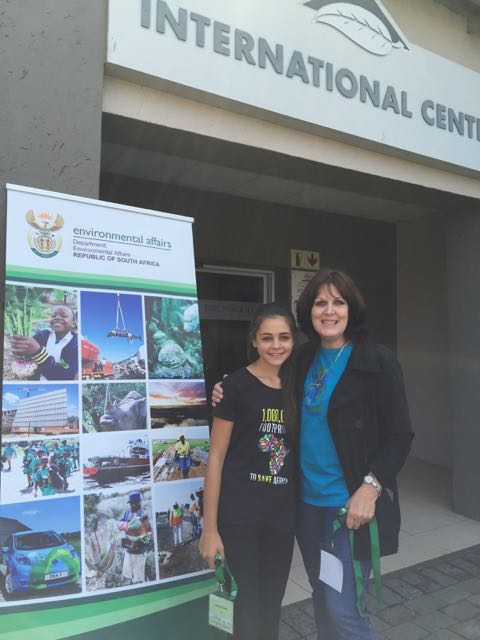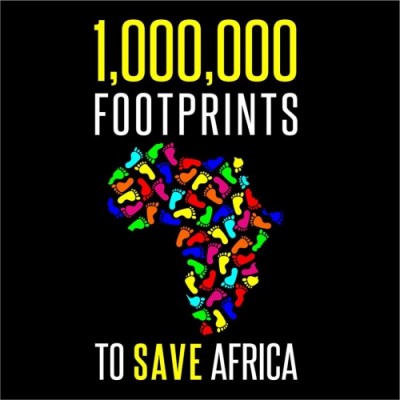
- This event has passed.
RSA Department of Environmental Affairs – Stakeholders Consultation Workshop – Rhino Horn Trade
March 25, 2015 - March 27, 2015
Event Navigation

Stakeholders Consultation Workshop – Rhino Horn Trade
View GalleryAll information below is taken from the link:
https//www.environment.gov.za/event/deptactivity/committeeofinquiry_rhinopoaching_workshop
Introduction and background
Whilst rhino poaching in many African range states remained a major problem between 1960 and 1995, particularly for the black rhino and northern white rhino, rhino poaching within South Africa was low. Between 1960 and 1980, numbers of rhinos poached were negligible, whilst between 1980 and 2007 the average rate of rhino poaching was nine animals per year. In 2008, however, a significant upsurge in rhino poaching took place in South Africa, with a reported 83 animals being killed illegally, and this trend has been escalating ever since.
In 2009, the official figure climbed to 122 rhinos poached; then to 333 in 2010; and 448 in 2011. While this rate of poaching does not yet exceed the population growth rate (meaning that the rhino population should continue to grow), should the rate of poaching continue to increase, it may eventually exceed the population growth, which would see South Africa’s rhino populations go into decline.
The overwhelming cause of rhino decline and extinction in the last 50 years has been poaching, simultaneously by demand for rhino horn used for traditional craft and traditional medicinal purposed by consumer nations in the middle-east and Asia.
The escalation in rhino poaching has amply exposed the weaknesses of current rhino protection measures. Technological innovations can offer exciting opportunities of bolstering rhino anti-poaching security measures.
Rhino stakeholders, very broadly defined, responded magnificently to the government’s invitation to discuss their concerns regarding the poachers’ onslaught on the South African rhino and to work together to devise strategies that could provide relief to, and rescue, the country’s embattled iconic mammal from the threat of extinction
Rhino dialogues consist of the views of organisations and individuals with an interest and stake in the sustainable conservation of the rhino population in South Africa. The aim of these dialogues is to solicit well-considered views on how best to secure the protection, safety and sustainable conservation of the rhinos in the country.
Purpose
The Department of Environmental Affairs was authorised by Cabinet in July 2013 to explore the feasibility of South Africa tabling a proposal for the legalisation of commercial international trade in rhino horn at the 17th Conference of Parties (CoP17) of the Convention on International Trade in Endangered Species of Wild Fauna and Flora (CITES) in 2016.
The Minister of Environmental Affairs, Mrs Edna Molewa introduced the Committee of Inquiry tasked with investigating the feasibility of a trade in rhino horn On 22 January 2015 and announced the names of panel members on 10 February 2013 following completion of pre-screening by the State Security Agency (SSA). The names of the committee members were announced following completion of pre-screening by the State Security Agency (SSA).
The Panel of Experts was established to assist the Inter-Ministerial Committee (IMC) appointed by Cabinet to deliberate on the matters relating to a possible trade in rhino horn. The Committee of Inquiry embarks on its work ahead of the 17th Conference of Parties (CoP17) of the Convention on International Trade in Endangered Species of Wild Fauna and Flora (CITES) in 2016. In the coming months the committee will engage with relevant stakeholders before submitting a set of recommendations to the Inter-Ministerial Committee (IMC).
Due to the technical nature of the issues to be discussed by the Committee of Inquiry, a Technical Advisory Committee (TAC) has been established. The TAC, comprising the Directors-General of the Departments of the Ministries represented in the Inter-Ministerial Committee (IMC), will facilitate the processes and ensure that both technical and strategic matters are adequately addressed before reports and or recommendations are submitted to the IMC for consideration.
The IMC will meet as soon as the Committee of Inquiry and the TAC have finalised reports for its consideration. It is important to emphasize that South Africa has not taken a position on the issue, and will not do so until the committee has completed its work and presented its findings. Any proposal will be based on sound research, taking into account the terms of the London declaration.
Workshop agenda and presentations
| Stakeholder Presentations to the Committee of Inquiry |
|
Date: 25 – 27 March 2015 Facillitator: Mas N Ntuli |
| Day 1: 25 March 2015 | |
| 08:00 – 09:00 | Registration |
| 09:00 – 09:15 | Introduction: Committee of Inquiry (Facilitator) |
| 09:15 – 09:30 | Purpose of the meeting (Facilitator) |
| Presentations to the Committee of Inquiry |
Please note: 20 minutes have been allocated per presenter – the 20 minutes utilization is as
follows: 15 minutes presentation 5 minutes – questions for clarification from
Committee members
| Day 1: 25 March 2015 |
| Time | Organisation / individual | Download presentation |
|---|---|---|
| 09:30 – 09:50 | 1. Scott “LB” Williams |  |
| 09:50 – 10:10 | 2. AfriForum – Julius Kleynhans | |
| 10:10 – 10:30 | 3. Balepye / Selwane Communities – Dipati Benjamin Maenetja |  |
| 10:30 – 10:50 | Tea / coffee break | |
| 10:50 – 11:10 | 4. Network for Animals – David Barritt |  |
| 11:10 – 11:30 | 5. Carmela Lattanzi |  |
| 11:30 – 11:50 | 6. Cindy Harper |  |
| 11:50 – 12:10 | 7. D Fick (Rolf Marquardt) |  |
| 12:10 – 12:30 | 8. David Cook | |
| 12:30 – 12:50 | 9. Youth 4 African Wildlife – Fortunate Mafeta Phaka |  |
| 13:10 – 14:00 | Lunch | |
| 14:00 – 14:20 | 10. Dex Kotze |  |
| 14:20 – 14:40 | 11. Jane Wiltshire |
 14:40 – 15:0012. Dave Andrews 15:00 – 15:2013. Eco Ranger – Johan Strauss
14:40 – 15:0012. Dave Andrews 15:00 – 15:2013. Eco Ranger – Johan Strauss 15:20 – 15:4014. Ecolife – Wouter van Hoven
15:20 – 15:4014. Ecolife – Wouter van Hoven 15:40 – 16:0015. WildAid – Adam Welz
15:40 – 16:0015. WildAid – Adam Welz 16:00 – 16:2016. Wildlife Ranching South Africa – Jacques Malan
16:00 – 16:2016. Wildlife Ranching South Africa – Jacques Malan 16:20 – 16:4017. John Hanks
16:20 – 16:4017. John Hanks 16:40 – 17:0018. Mkambati Matters – Colin Bell
16:40 – 17:0018. Mkambati Matters – Colin Bell
[back to top]
| Day 2: 26 March 2015 |
| Time | Organisation / Individual | Download presentation |
|---|---|---|
| 08:00 – 08:20 | 19. Endangered Wildlife Trust (EWT) – Andrew Taylor |  |
| 08:20 – 08:40 | 20. Wild and Free – Margot Stewart |  |
| 08:40 – 09:00 | 21. Greater Kuduland Safaris – Howard Knott & Pieter Slabbert | |
| 09:00 – 09:20 | 22. Bean Attorneys – Chris Bean | |
| 09:20 – 09:40 | 23. John Hume |  |
| 09:40 – 10:00 | 24. Kim Da Ribeira | |
| 10:00 – 10:20 | 25. Mankwe Wildlife Reserve – Dougal MacTavish | |
| 10:20 – 10:40 | Tea / cofee break | |
| 10:40 – 11:00 | 26. Marlene Martin | |
| 11:00 – 11:20 | 27. Michael Eustace | |
| 11:20 – 11:40 | 28. National Society for the Prevention of Cruelty to Animals (NSCPA) – Ainsley Hay | |
| 11:40 – 12:00 | 29. Batobic Programme – Nico Oosthuizen |  |
| 12:00 – 12:20 | 30. People & Parks Community Representative – M Molokwane | |
| 12:20 – 12:40 | 31. Piet Smit Warren (Pieter- Daan Cilliers) |  |
| 12:40 – 13:10 | 32. Limpopo Rhino Security Group – Franco D’Arrigo | |
| 13:10 – 14:00 | Lunch | |
| 14:00 – 14:20 | 33. Andrew Paterson Rhinose Foundation | |
| 14:20 – 14:40 | 34. Private Rhino Owners Association – Izak du Toit |  |
| 14:40 – 15:00 | 35. Private Rhino Owners Association – Reubin Els |  |
| 15:00 – 15:20 | 36. Thaba Tholo – Reubin Els | |
| 15:20 – 15:40 | 37. Resource Africa – D Ndebele | |
| 15:40 – 16:00 | 38. Save our Rhino – Loraine Liebenberg |  |
| 16:00 – 16:20 | 39. Senzokuhle Community Based Organisation – Sbonelo Cele | |
| 16:20 – 16:40 | 40. Eko Wild – Wilhelm Schack | |
[back to top]
| Day 3: 27 March 2015 |
| Time | Organisation / individual | Download presentation |
|---|---|---|
| 08:00 – 08:20 | 41. South African Hunters and Game Conservation Association – Lizanne Nel |  |
| 08:20 – 08:40 | 42. South African Institute of International Affairs – Ross Harvey |  |
| 08:40 – 09:00 | 43. Timbavati – Jacques Brits |  |
| 09:00 – 09:20 | 44. Game Reserves United (GRU) – Jacques Brits |  |
| 09:20 – 09:40 | 45. TRAFFIC – The Wildlife Trade Monitoring Network – David Newton |  |
| 09:40 – 10:00 | 46. Wildlife and Environment Society of South Africa (WESSA) (Lowveld Branch) – CJ Forrest |  |
| 10:00 – 10:20 | 47. Wildlife and Environment Society of South Africa (WESSA) (PE) – Morgan Griffiths | |
| 10:20 – 10:40 | Tea / coffee break | |
| 10:40 – 11:00 | 48. Andbeyond – Simon Naylor / Les Carlisle | |
| 11:00 – 11:20 | 49. Conservation Action Trust – Francis Garrard | |
| 11:20 – 11:40 | 50. Centre of Excellence for Environmental Decisions (University of Queensland, Australia) – Duan Biggs |  |
| 11:40 – 12:00 | 51. UNEP – Cecilie Njenga | |
| 12:00 – 12:20 | 52. Act Now South Africa (ANSA) – Chamu Muvheyo |  |
| 12:20 – 12:40 | 53. Alex Kennaugh | |
| 12:40 – 13:10 | 54. Margie Kolver, Cheryl Cook, Monique Theron and Eugene Theron – One More Generation |
